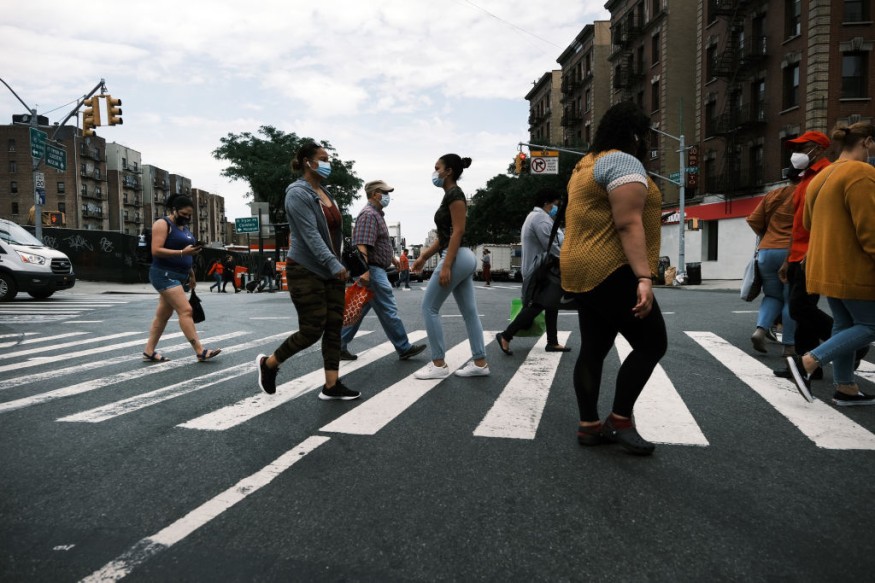Latinos in the U.S. With Darker Skin Face More Discrimination, New Study Shows

A new Pew Research Center study found that darker skin among Latinos can impact their everyday lives and long-term success in the United States.
The research center surveyed 3,375 Latinos in the U.S., with 62 percent saying having darker skin hurts their chances of getting ahead, while 59 percent say that having light skin helps them, the Associated Press reported.
The study was released on Thursday and came months after colorism captured wide attention with the release of the movie "In the Heights," which was criticized for its lack of dark-skinned Afro Latinos in leading roles.
The Pew study further noted that 57 percent of Latinos say their skin tone affects their everyday lives, adding that most dark-skinned Hispanics have experienced discrimination because of it.
Study: Latinos With Darker Skin Face More Discrimination
Nadia Y. Flores-Yeffal, associate professor of sociology at Texas Tech University, said the findings were supported by years of research showing dark-skinned people earn less money and experience more bigotry.
Latinos in the U.S. are not the only the ones facing colorism. In Mexico, people with Indigenous features are also reportedly looked down on, while lighter-skinned Mexicans are among the most powerful politicians, businesspeople, and celebrities.
Flores-Yeffal said colorism had been around for many years, adding that it doesn't look like "it's going anywhere," NPR reported.
Laura E. Gómez, a law professor, said people must talk about racism within the Latino community to fight anti-Latino racism. The law professor noted that talking about colorism is a good step toward resolving the issue.
Ana Gonzalez-Barrera, the lead author of the Pew report on the survey, said Latinos are very aware of colorism in their community and how darker skin color can hurt their chances to get ahead in life.
READ NEXT : Pandora Papers: Shakira, Julio Iglesias, Chayanne Among Famous Spanish and Latino Artists to Use Tax Havens
Report Finds Latinos Vastly Underrepresented in Media
In September, a government report said Latinos are "perpetually absent" in major newsrooms, Hollywood films, and other media industries where their portrayals could profoundly affect how their fellow Americans view them.
Texas Rep. Joaquin Castro has called on Hollywood studio directors, book publishers, and journalism leaders to include their perspectives.
According to Castro, the lack of accurate representation means at the very best that Americans do not get a complete understanding of Latinos and their contributions, especially in Hollywood, according to another AP report.
At worst, Castro noted that Latinos are solely portrayed as drug dealers or criminals that invite politicians to exploit negative stereotypes for political gain.
Castro told the AP that American media, including print journalism, has relied on stereotypes of Latinos. He added that if the goal is the truth, it has not indeed served the truth.
Meanwhile, the report also found that management jobs had the lowest representation for Latinos. About five to six percent of main cast members in TV and film are composed of Latinos, despite being around 18 percent of the U.S. population.
Ana-Christina Ramón, who was involved in the study, said that it's a bit of a ceiling and does not go over that percentage.
This article is owned by Latin Post
Written by: Mary Webber
WATCH: 'Corazón De América' Examines Colorism in the Latino Community - From ABC News
Subscribe to Latin Post!
Sign up for our free newsletter for the Latest coverage!
















